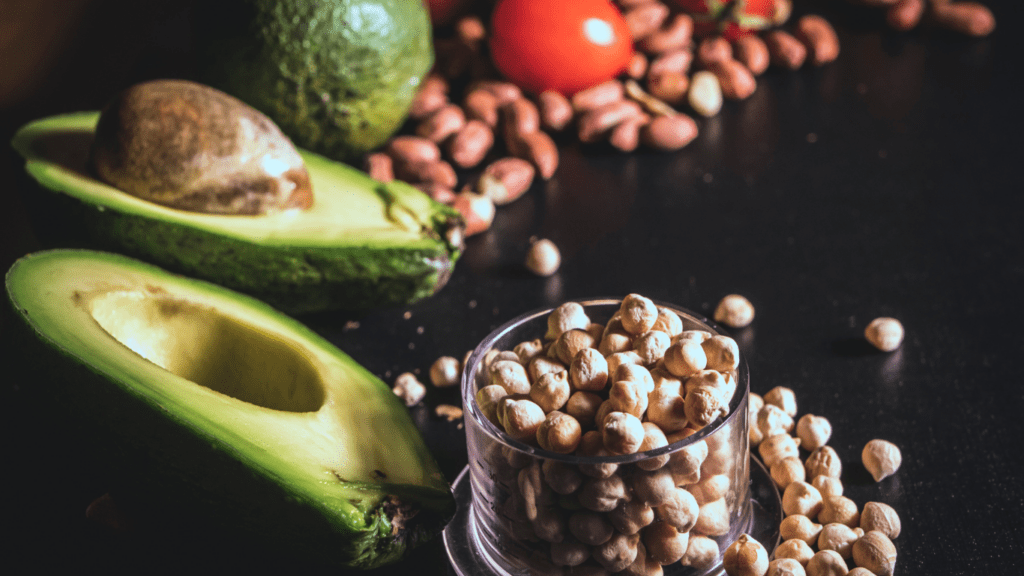Understanding Macronutrients
Macronutrients form the foundation of athletic performance. My body relies on them for energy, muscle repair, and overall health. Each macronutrient—protein, carbohydrates, and fats—plays a unique role.
Protein’s Role
Protein supports muscle repair and growth. Lean meats, eggs, and legumes are rich sources. Amino acids, the building blocks of protein, help synthesize new muscle tissue, making protein consumption essential after workouts.
Carbohydrates as Fuel
Carbohydrates provide energy. Whole grains, fruits, and vegetables deliver this fuel. During workouts, carbohydrates break down into glucose, powering my muscles and keeping my endurance steady.
Fats for Energy and Hormones
Fats offer long-lasting energy. Avocados, nuts, and seeds contribute healthy fats. They not only provide energy but also play a role in hormone production and cell function, supporting my overall performance.
Incorporating a balance of these macronutrients optimizes my athletic potential.
The Role of Protein in Muscle Growth
Protein plays a crucial role in muscle development and repair. Athletes rely on protein to facilitate muscle recovery after intense workouts.
Sources of Protein for Athletes
Several sources provide high-quality protein:
- Lean meats, including chicken and turkey, offer essential amino acids.
- Fish, like salmon and tuna, supply protein and omega-3 fatty acids.
- Eggs contain complete proteins and vital nutrients.
- Legumes, such as lentils and chickpeas, provide plant-based protein.
- Dairy products, including Greek yogurt and cheese, offer protein and calcium.
- General guidelines suggest consuming 1.2 to 2.0 grams of protein per kilogram of body weight daily, depending on activity levels.
- Splitting protein consumption into several meals promotes efficient absorption.
- Including protein-rich snacks, such as protein bars or shakes, aids in meeting daily needs.
- Adhering to these guidelines enhances muscle synthesis and supports athletic goals.
Carbohydrates and Energy Levels
Carbohydrates provide crucial energy for athletes, powering muscles and maintaining endurance. They’re vital in sustaining high-intensity exercise levels.
Types of Carbs for Training
Complex carbs, like whole grains and sweet potatoes, release energy slowly, fueling long workouts. These foods help maintain steady blood sugar and support sustained energy. Simple carbs, such as fruits and honey, are ideal for quick energy boosts before or during training sessions. They rapidly convert to glucose, providing immediate energy for muscles. Including both types ensures versatility in meeting different energy demands.
Timing Carbohydrate Consumption
Eating carbs 1-4 hours before exercise maximizes glycogen stores, enhancing performance. For endurance activities, consuming carbs during workouts in the form of gels or drinks can prevent fatigue. Post-workout carbs paired with protein aid muscle recovery and replenish energy reserves, promoting better overall recovery. Careful timing optimizes energy availability and reduces the risk of glycogen depletion.
The Importance of Fats in Diet

Fats play a crucial role in an athlete’s diet. They provide sustained energy, support hormone production, and aid nutrient absorption.
Healthy Fats for Athletes
Healthy fats enhance athletic performance. They are found in foods such as:
- avocados
- nuts
- seeds
- fatty fish
These fats, which include monounsaturated and polyunsaturated fats, help reduce inflammation and improve cardiovascular health. Omega-3 fatty acids, present in fish like salmon, support joint health and cognitive function.
Balancing Fat Intake for Performance
Balancing fat intake is essential for maximizing performance. Consuming too much can lead to weight gain, while insufficient intake might impair energy levels and recovery. Athletes should aim for fats to make up 20-35% of their total daily calorie intake. Prioritizing healthy fats over saturated and trans fats ensures better health and optimal performance. Including fats in meals around training sessions can provide a steady energy source, aiding endurance sports and long-duration workouts.
Creating a Balanced Diet Plan
A balanced diet plan is crucial for athletes striving to optimize performance and recovery. It involves strategic meal planning and adjusting macronutrient ratios to meet individual needs.
Meal Planning Tips
A well-structured meal plan supports athletic goals and daily nutritional requirements. First, I focus on timing meals around workouts to enhance energy availability. Consuming a combo of protein and complex carbs within 1-2 hours post-exercise aids recovery. In addition, I ensure that each meal includes a source of lean protein, complex carbs, and healthy fats. For example, chicken with quinoa and avocado can provide necessary nutrients. Snacks also play a key role; nuts or a yogurt parfait with berries can help maintain energy between meals. Lastly, I track portion sizes to prevent overeating and maintain an appropriate energy balance.
Adjusting Macronutrient Ratios
Tailoring macronutrient ratios enhances dietary effectiveness for athletic performance. My protein intake aligns with recommended amounts, typically 1.2 to 2.0 grams per kilogram of body weight. If I’m increasing training intensity, I assess the need for more protein. For carbohydrates, I adjust based on the type and duration of exercise. Endurance training often requires higher carb intake, while low-intensity days might necessitate less. Fats provide long-lasting energy and should comprise 20-35% of daily calories. Prioritizing omega-3 and healthy fats ensures optimal hormone support and inflammation reduction. These adjustments reflect evolving fitness goals and training demands.





